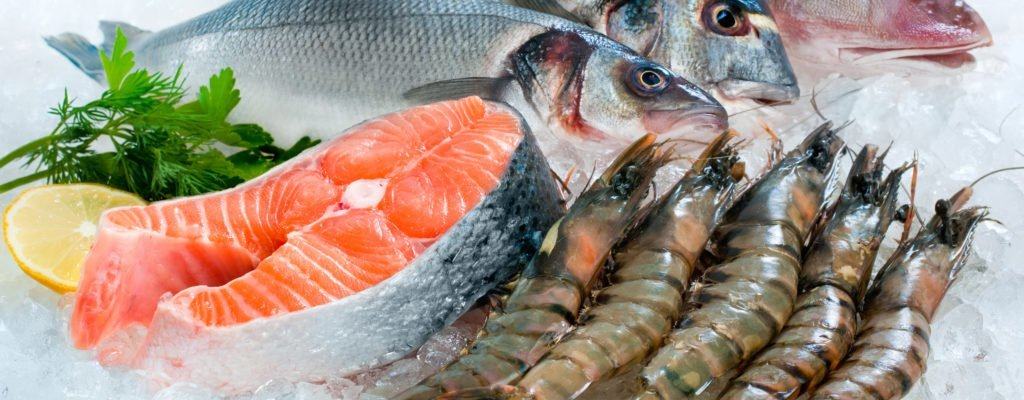
Most types of fish are quite safe for pregnant women, as long as you cook them properly. In fact, there are quite a few types of fish that can benefit both pregnant women and the unborn baby.
Safe seafood processing for pregnant mothers
When preparing fish and seafood at home, there are a few tips below for safe cooking:
If you are going to cook fish fillets, check that the fish is cooked by cutting the meat with a sharp knife and pulling aside. Normally, the cooked meat will be cloudy, with the scabs separated. When you want to remove the fish from the oven or turn off the oven, leave the fish in the oven for 3-4 minutes to make sure it's done.
Seafood such as shrimp and lobster usually turn red when cooked, and the fleshy, pearly colored part is slightly cloudy. Scallops will be milky white, milky white and the meat looks firmer. For clams, clams, clams, and oysters, choose shellfish after cooking to eat. If you don't open the covers, throw them away.
When microwaving seafood, you can use a resistive sensor to check if these seafood have reached a temperature of at least 630C. Then you will know for sure that it's cooked and ready to eat.
The role of fish oil for pregnant mothers
Fish oil is good for you, so it is still very important in your daily diet. It contains omega-3 fatty acids and vitamins and nutrients that are beneficial for you and your baby. There are many types of oily fish to choose from, such as:
Salmon;
Mackerel;
Herring;
Pilchard;
Eel;
Anchovy;
Fresh tuna.
Fish such as sea bream, spiny shark (also known as rock trout), crab and seabass also have a high amount of fish oil. However, you should not eat these seafood more than 2 times a week.
For tuna, although the amount of mercury in fish is not too high, if eaten in large amounts can damage the nervous system of children. So, you should only eat 50 g - 200 g per week. Sharks, swordfish and marlin fish are high in mercury, so you should not eat these fish while you are pregnant. Instead, you can take any of the following fish during pregnancy:
Plaice;
Snow fish;
Flounder;
Gurnard.
When choosing dietary fish oils to supplement, keep in mind that they can be contaminated with certain substances due to environmental pollution, such as PCBs (polychlorinated biphenyls) and dioxins. So, try not to drink more than two servings a week.
Hidden parasites in seafood affect pregnant mother like?
Almost any type of fresh seafood has potential risks when choosing ingredients, because it can contain parasites like tapeworms. Tapeworms can make you and your baby sick. If you eat fish, ask for it to be cooked. This is especially important in Japanese restaurants, as they usually cook lightly on the outside, while the inside is really unripe.
The sushi sold in supermarkets is usually safe. Although sushi usually contains raw fish, the fish has been frozen to kill the tapeworm parasites. It is best when buying sushi at the store, you should ask the staff if the fish has been frozen.
Salmon and mackerel are also considered safe for pregnant mothers. Smoking fish will kill parasites and listeria bacteria . However, if the smoked salmon has not been handled or frozen before eating, the listeria may persist.
You should choose safe quality places to buy, such as supermarkets and check the date and origin if you are unsure. You can also eat fish that have been salted or pickled. If you like oysters, mussels and shellfish, you'll need to make sure it's cooked thoroughly if you want to eat them during pregnancy. Raw shellfish can be contaminated with harmful bacteria and viruses that cause food poisoning. During pregnancy, you are more likely to get food poisoning .
In some cases, raw fish food poisoning may not harm your baby, but it can be unpleasant. When cooking shellfish, you need to cook it thoroughly to kill any bacteria and viruses in the shellfish.












